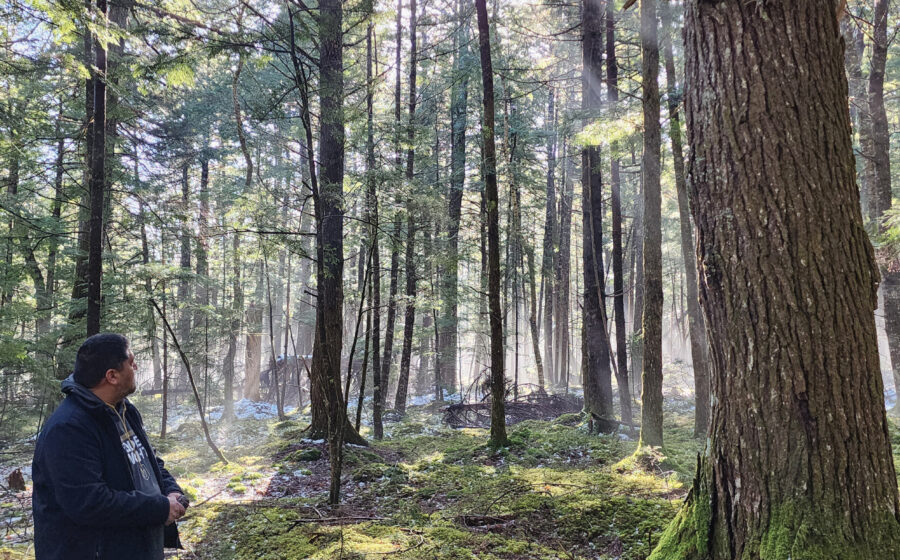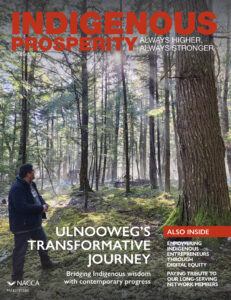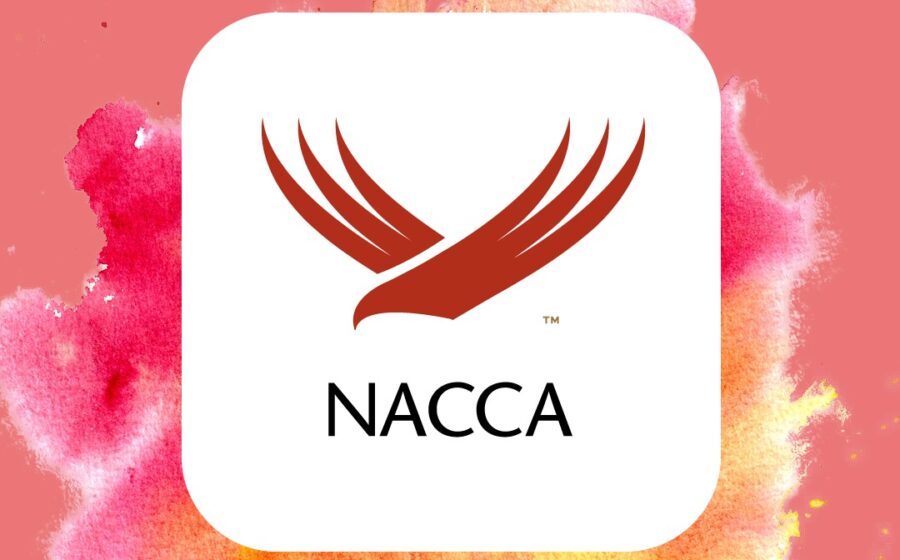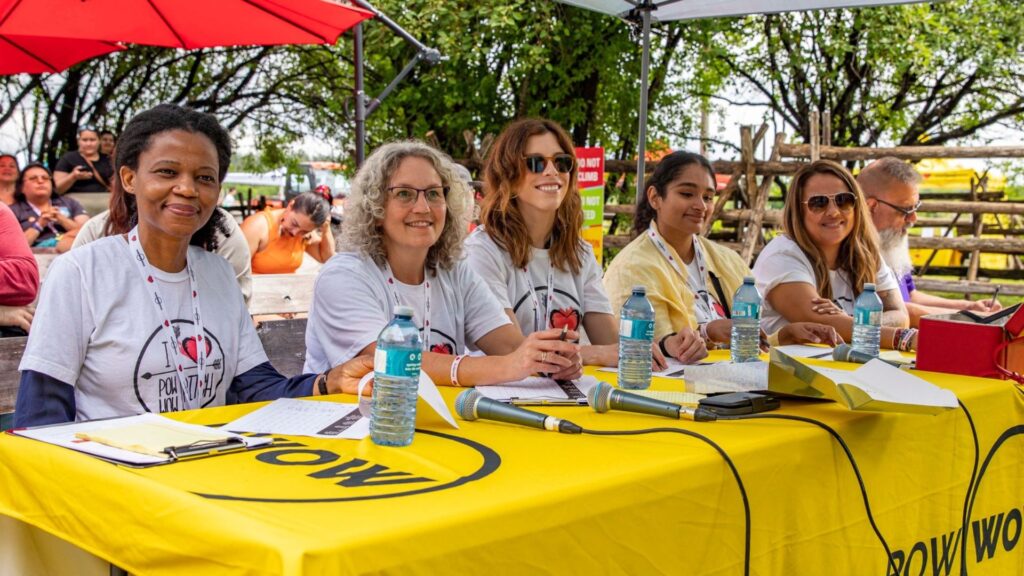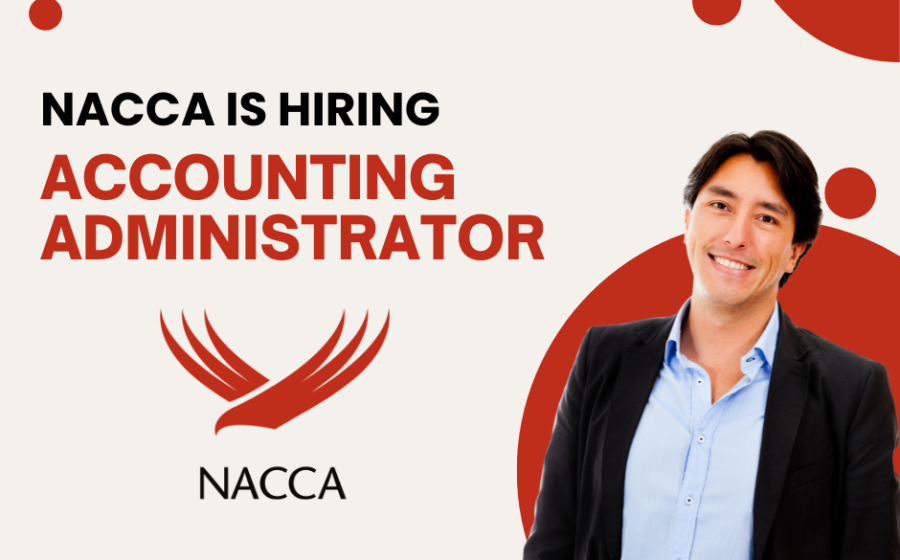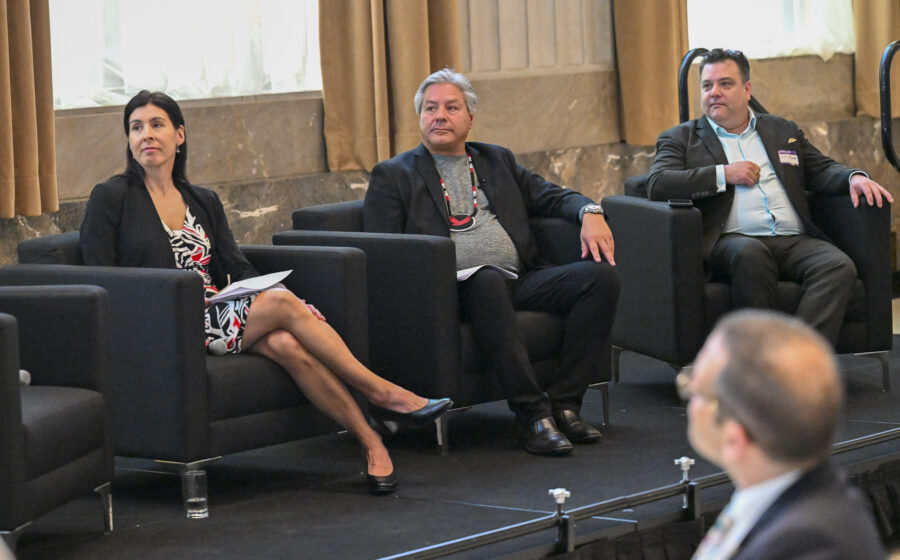Featured
CAREER OPPORTUNITY – Human Resources Manager (Mat Leave)
NACCA, the National Aboriginal Capital Corporations Association, is a network of over 50 Indigenous Financial Institutions (IFIs) dedicated to stimulating economic growth for all Indigenous people in Canada. NACCA’s goal is to provide opportunities for Indigenous entrepreneurs and increase prosperity for Indigenous people in Canada.
We are seeking a dynamic and experienced Human Resource Manager to provide maternity leave coverage. This is a temporary role with an estimated duration of one year.
The Human Resources Manager will lead and direct the functions of the Human Resources (HR) department including recruitment and selection, labour and employee relations, total rewards, performance management, and organizational development.
FREE WEBINAR – Hosted by EDC (Social & Business Impact)
EDC Webinar: The social and business impact of supplier diversity
Learn how to implement a supplier diversity program and how it can stimulate your business growth by attending EDC’s upcoming webinar, The social and business impact of supplier diversity.
One of the biggest barriers to supplier diversity for all Canadian businesses is a lack of awareness and understanding. Yet diversifying your suppliers can drive economic growth, promote innovation, foster inclusivity, and provide a competitive edge in the market.
Join us on Thursday, Aug. 17, 2023, from 1 to 2 p.m. ET as we discuss:
- The strategic benefits for all Canadian companies of establishing a supplier diversity program and how it aligns with your company’s growth objectives
- How Canadian businesses owned by equity seeking groups can become a certified diverse supplier and how competing in supplier diversity programs can help you reach your international business goals
- How one company benefited from being certified and leveraged supplier diversity programs to grow
More information on the speakers and the webinar registration link can be found here: https://go.edc.ca/b77upi
CAREER OPPORTUNITY – Accounting Administrator
NACCA, the National Aboriginal Capital Corporations Association, is a network of over 50 Indigenous Financial Institutions (IFIs) dedicated to stimulating economic growth for all Indigenous people in Canada. NACCA’s goal is to provide opportunities for Indigenous entrepreneurs and increase prosperity for Indigenous people in Canada.
The Accounting Administrator is responsible for administering accounting functions, including preparing accounts payable and accounts receivable, maintaining the corresponding sub-ledgers as well as assisting with monthly closings and account analysis and supporting the Finance team in carrying out the day-to-day responsibilities of the department.
CAREER OPPORTUNITY – Communications Coordinator
As the Communications Coordinator, you will play a pivotal role in supporting our organization’s mission by effectively communicating our initiatives, achievements, and objectives to internal and external stakeholders.
You will collaborate closely with various teams to develop and implement comprehensive communication strategies that amplify our efforts within the Indigenous economy and government relations sectors. Your strong communication skills and ability to build meaningful relationships will be essential in promoting our organization’s work and engaging with diverse stakeholders.
CAREER OPPORTUNITY – Human Resources Officer
The Position Reporting to the Human Resources Manager, the Human Resources Officer will play a key role in supporting the organization’s human resources functions and contribute to the development and implementation of HR strategies and initiatives. They will also perform administrative tasks and services to support effective and efficient operations of NACCA.
PRESS RELEASE – INDIGENOUS ECONOMIC LEADERS PROVIDE ECONOMIC RECONCILIATION KNOWLEDGE TO PARLIAMENTARIANS AND SENATORS
June 16, 2023 – Ottawa (ON) – On, Wednesday, June 14th, 2023, the National Aboriginal Capital Corporations Association (NACCA) brought Parliamentarians and their staff together with leading experts on economic reconciliation and Indigenous prosperity for a successful lunch and learn. The event was hosted on Parliament Hill in partnership with the Senate of Canada and hosted on the unceded and unsurrendered territory of the Algonquin and Anishinaabe People.
“Advancing Economic Reconciliation on Parliament Hill”, was an opportunity to discuss economic reconciliation, what it should look like, and who should be involved. After a beautiful performance from the Spiritwolf Singers and an opening prayer led by Elder Claudette Commanda, opening remarks were made by Victoria LaBillois of the National Indigenous Economic Development Board (NIEDB), Senator Marty Klyne, and NACCA CEO, Shannin Metatawabin.
In his remarks, CEO Shannin Metatawabin highlighted the benefits of investing in Indigenous communities by emphasizing NACCA’s work to recycle an initial federal investment of $240 million into 50,000 loans worth more than $3 billion. Shannin says, “Everyone plays a role in economic reconciliation, and it benefits everyone in the end. With the proper inclusion and consultation, fulsome discussions, and collaboration, we can take the journey of economic reconciliation together toward a better future for all.”
The knowledge sharing was well-received, and a key takeaway was the importance of government collaboration in addressing the remaining barriers to Indigenous economic growth and ongoing supports for what is already working. This includes programs like the Aboriginal Entrepreneurship Program (AEP) through NACCA and the Indigenous Financial Institution (IFI) network. The event highlighted Indigenous economic success stories, as well as a panel discussion on the importance of economic inclusion and how it plays a role in reconciliation. NACCA extends its sincere appreciation to Victoria LaBillois (Wejuseg Construction), Jean Vincent (NACCA), Jeff Klause (Voyageur Internet), and Udloriak Hanson (Baffinland), Kirt Ejesiak (Arctic UAV Inc), Dawn Madahbee-Leach (Waubetek Business Development Corporation) and Bill Lomax (First Nations Bank of Canada – (FNBC)) for their expertise and insight. Special note of the thanks to FNBC for sponsorship of the event.
– 30 –
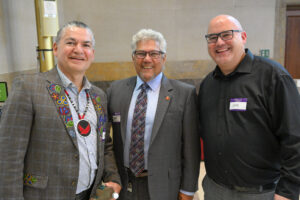
NACCA CEO Shannin Metatawabin, Senator Marty Klyne, NACCA COO Cory McDougall
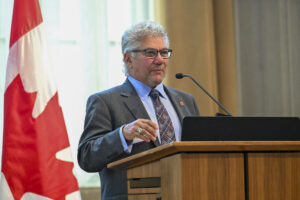
Senator Marty Klyne
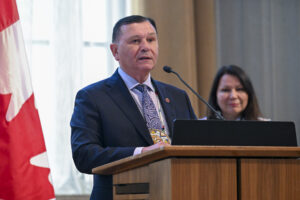
Senator Brian Francis
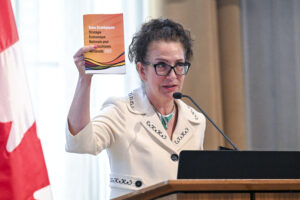
Victoria LaBillois
**Photo Credit – Fred Cattroll
Media inquiries: jlamoureux@nacca.ca
NACCA, the National Aboriginal Capital Corporations Association, is a network of over 50 Indigenous Financial Institutions (IFIs) dedicated to stimulating economic growth for all Indigenous people in Canada. These efforts increase social and economic self-reliance and sustainability for Indigenous people and communities nationwide.
CAREER OPPORTUNITY – Accounting Administrator
NACCA advocates for Indigenous economic development by focusing on the following: representing the unified voice of IFIs; publishing national and regional results of IFI work; fostering partnerships and building capacity; and delivering programs, products, and services to IFIs.
The Accounting Administrator is responsible for administering accounting functions, including preparing accounts payable and accounts receivable, maintaining the corresponding sub-ledgers as
well as assisting with monthly closings and account analysis and supporting the Finance team in carrying out the day-to-day responsibilities of the department.
CAREER OPPORTUNITY – IT MANAGER
NACCA advocates for Indigenous economic development by focusing on the following: representing the unified voice of IFIs; publishing national and regional results of IFI work; fostering partnerships and building capacity; and delivering programs, products, and services to IFIs.
The IT Manager will be responsible for the overall planning, organization, and execution of all IT functions to meet NACCA’s organizational requirements. They will lead the IT services department with the primary objective being to facilitate the effective use of technological and productivity tools by the organization in support of NACCA’s strategic plan. The successful candidate will also be accountable for ensuring reliable and secure systems administration.

